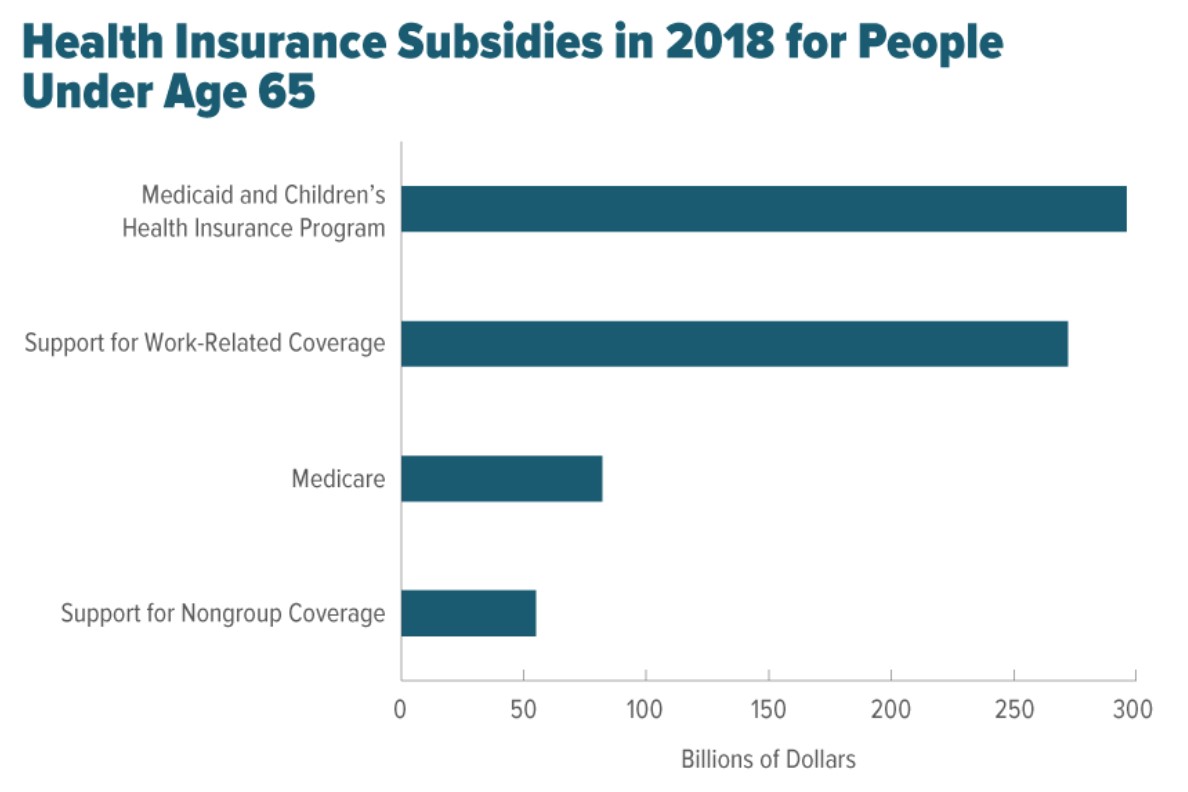Trump tried to repeal Obamacare and failed. Instead, the administration’s actions bumped up healthcare insurance premiums by as much as 34 percent, and now the government is expecting to pay a whopping $700 billion in subsidies this year to help Americans cover these hefty monthly payments.
In its new analysis, the nonpartisan Congressional Budget Office (CBO) reported that U.S. government will allocate almost $700 billion in subsidies this year help provide Americans with health insurance, equivalent to about 3.4 percent of the U.S. gross domestic product.
It’s a hefty bill, and it includes the cost of preferential tax treatment for work-related insurance coverage, the cost of Medicaid and Medicare for people under age 65, and government payments for other kinds of health insurance coverage—such as plans purchased through the marketplaces established under the Affordable Care Act (ACA).
The CBO’s “Federal Subsidies for Health Insurance Coverage for People Under Age 65: 2018 to 2028” expects subsidies to cost the government $1.2 trillion in 2028.
As for this year, about $296 billion of the price tag reflects federal spending on programs like Medicaid and the Children's Health Insurance Program, which help insure low-income people. Almost as big are the tax write-offs that employers take for providing coverage to their workers. Related: Are Gold Markets Ignoring Geopolitical Risk?
Medicare-eligible individuals account for $82 billion. Subsidies for Obamacare and for other individual coverage are the smallest segment, at $55 billion.

(Click to enlarge)
The average premium for a “benchmark” plan this year is about 34 percent higher than it was in 2017, and CBO expects those premiums to rise by some 15 percent next year and by about 7 percent annually through 2028.
The reason for the rising premiums? Trump, who has tried unsuccessfully to repeal Obamacare. A part of the broader tax law passed by the Trump administration late last year, the individual mandate requiring most people to have some form of health insurance or pay a tax penalty, was successfully repealed and should go into effect next year.
The agency projects that premiums for benchmark plans will then rise by an average of 7 percent a year from 2019 to 2028.
About 29 million people will remain uninsured in an average month in 2018. The number of uninsured is projected to rise by 3 million from 2018 to 2019 as the elimination of the individual mandate premiums in the nongroup market will force premiums higher. CBO stressed that about 20 percent of these uninsured are illegal immigrants.
Related: Banking Giant Accidentally Loses $35 Billion
The CBO’s report is likely to play a key role in the November midterm election battle, with Democrats latching on to the subsidy bankroll and estimates of growing numbers of uninsured, while the administration will focus on its claim that for many on the exchanges, health insurance is now less expensive because the federal government is footing more of the bill.
Insurance plans may now be cheaper, but the trade-off is they won’t have to cover pre-existing conditions or legal essential health benefits such as maternity care, mental health or prescription drugs.
Democrats are concerned that premiums will rise out of control as healthy individuals leave Obamacare and buy short-term plans that will no longer have time restrictions.
By Fred Dunkley for Safehaven.com
More Top Reads From Safehaven.com
















